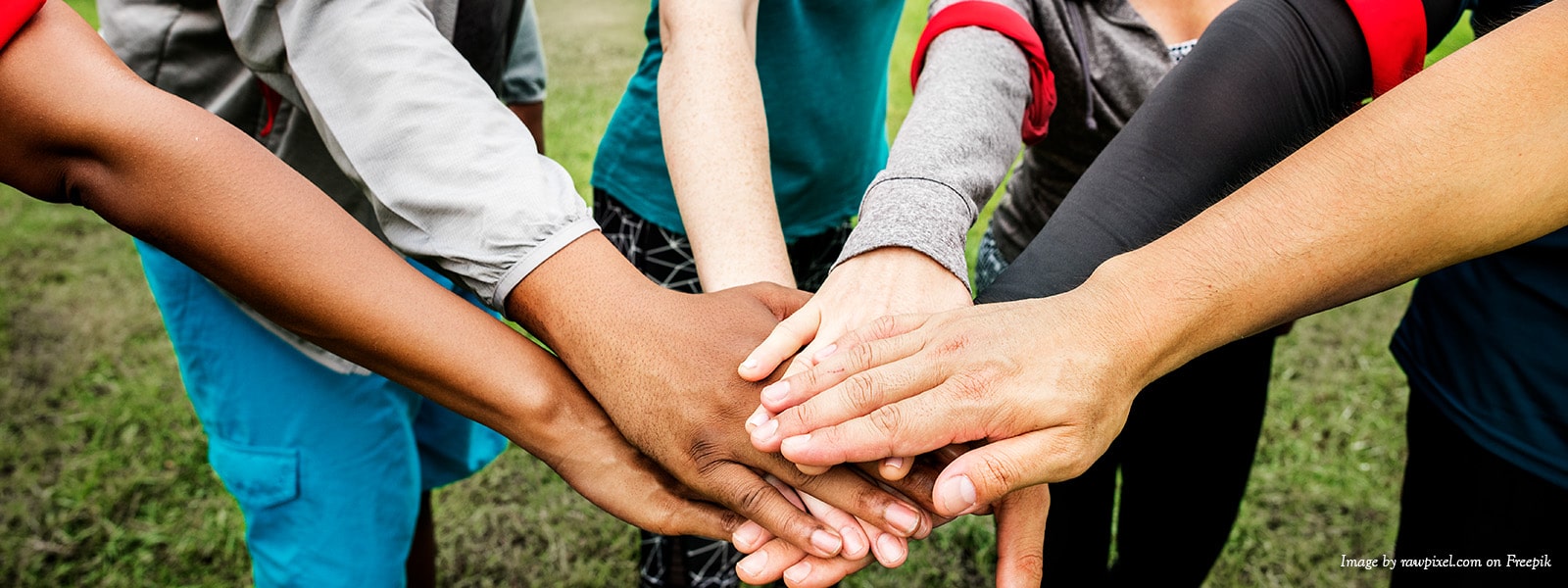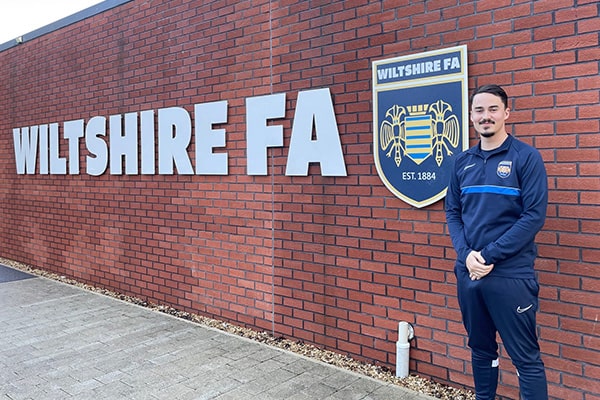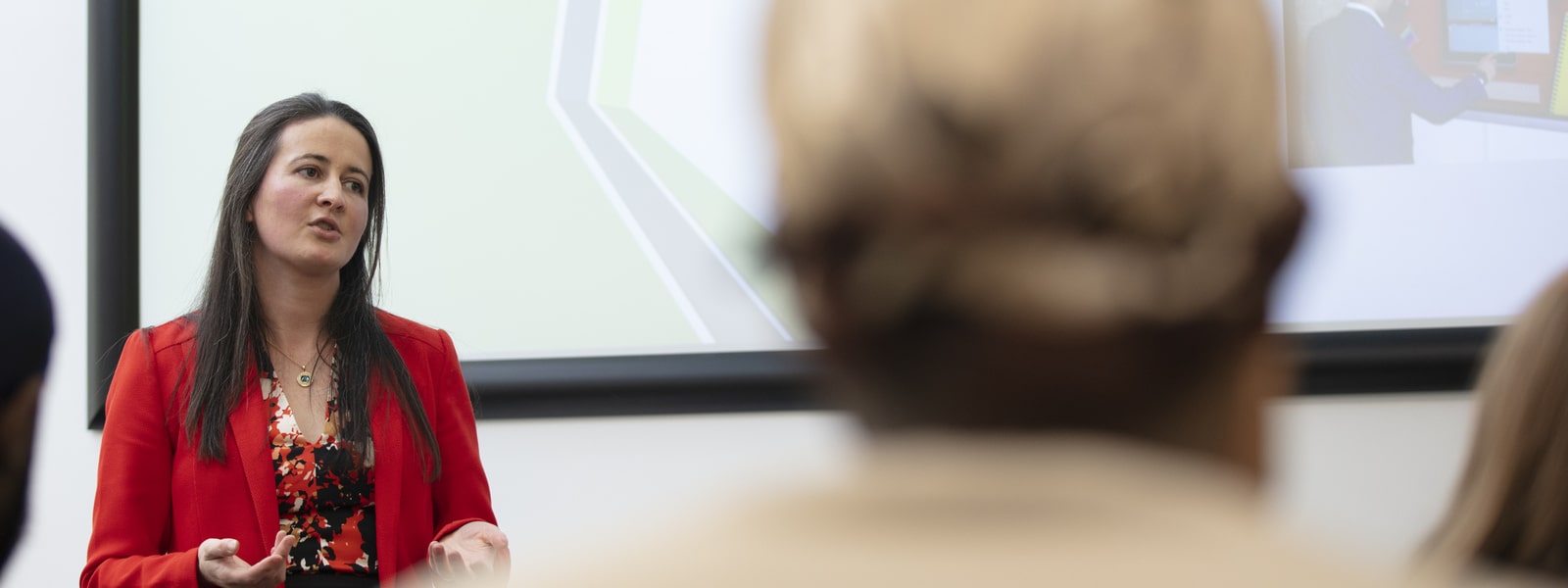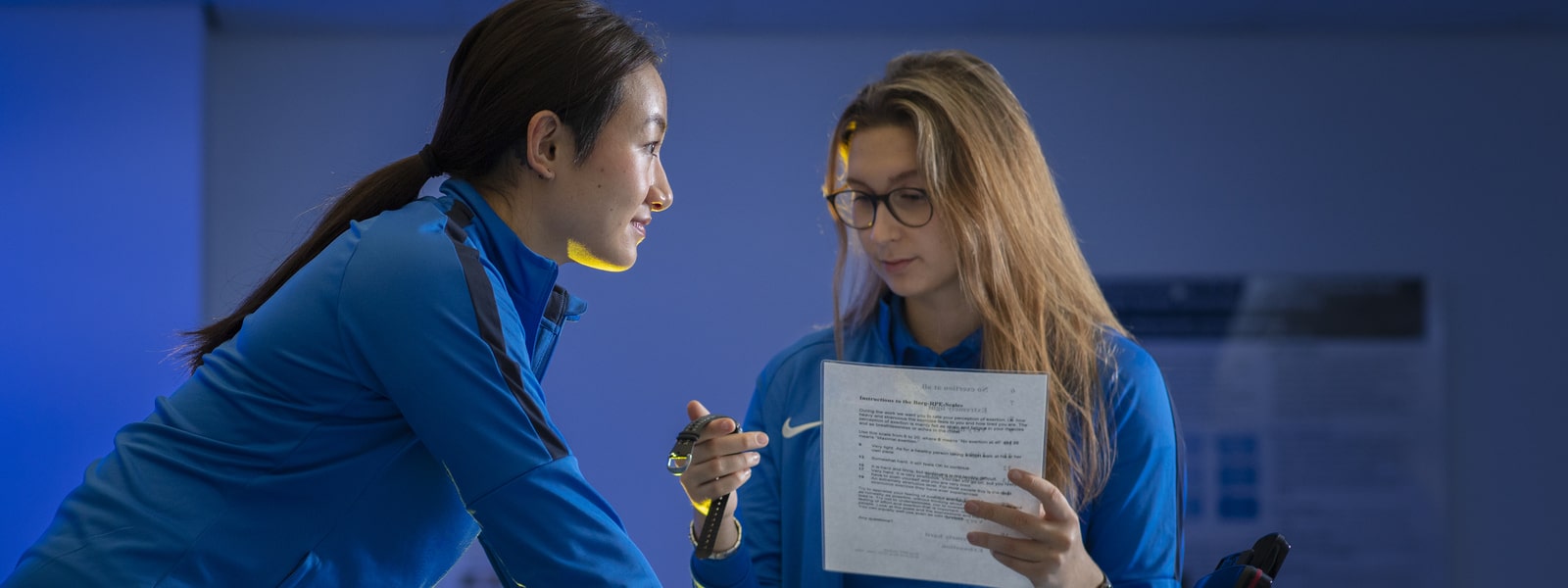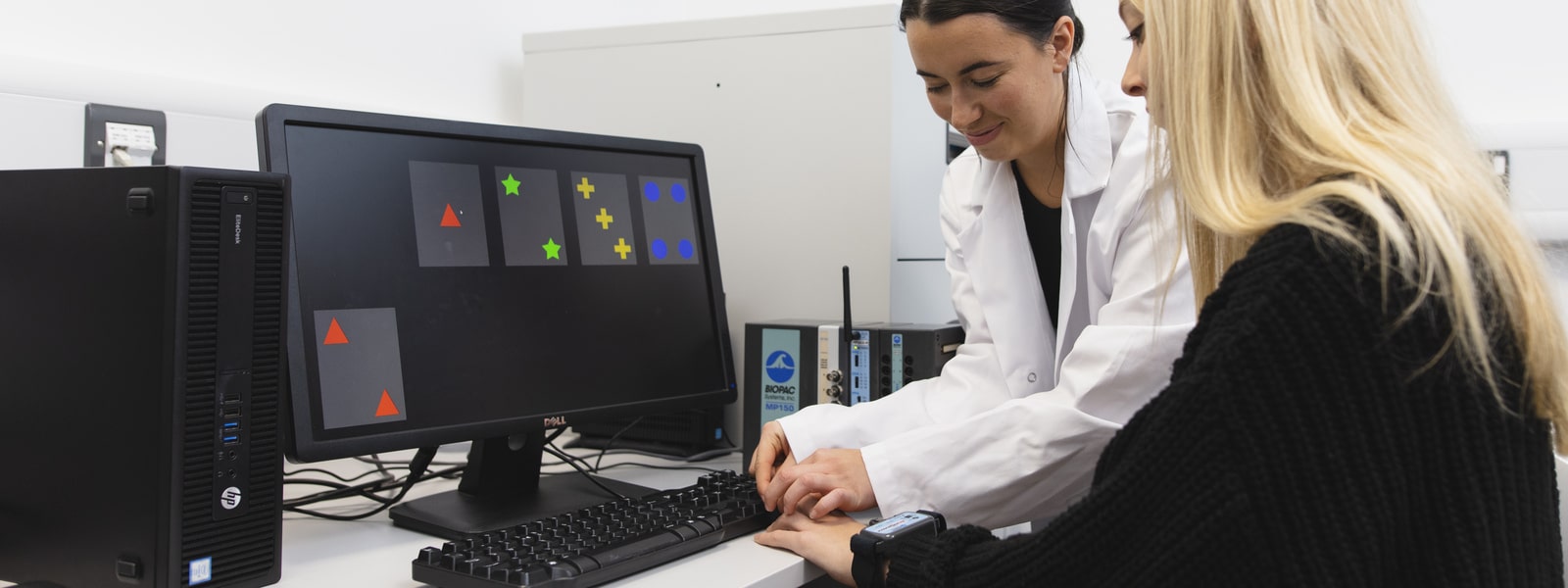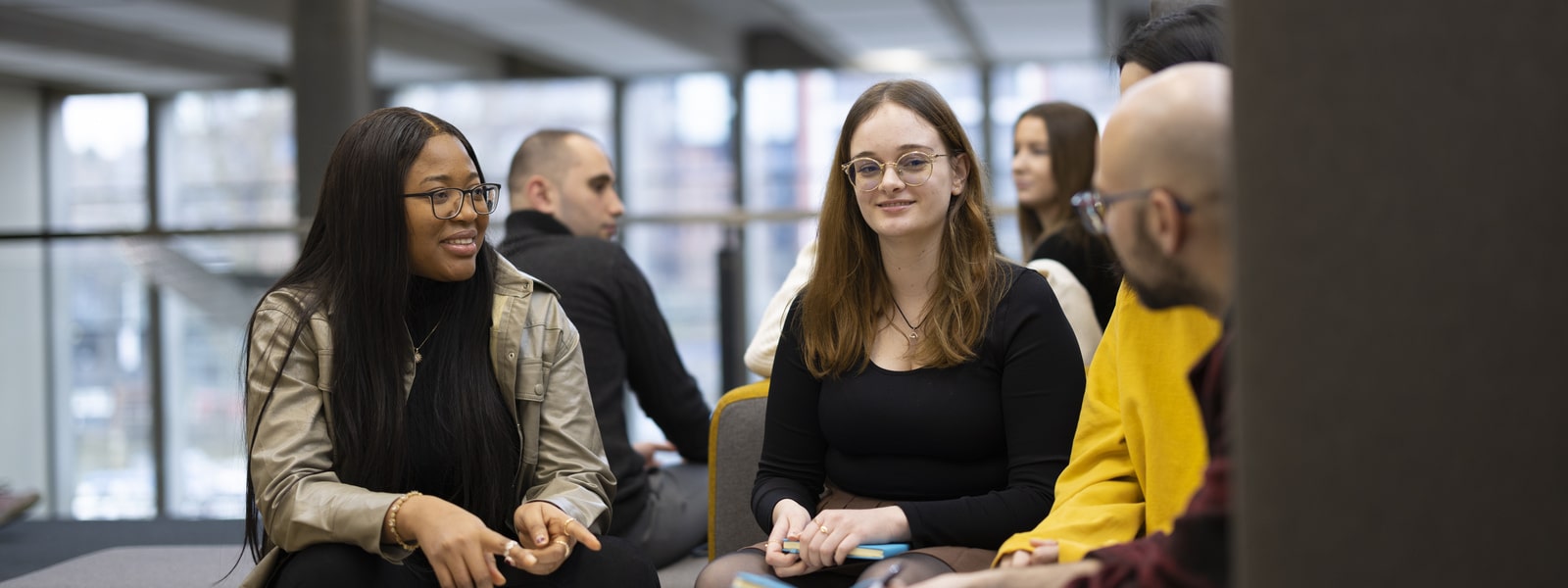Module Overview
The module examines significant areas of club activity including participation, fan engagement, community interaction, and event/ tournament management. The module also examines legal and financial considerations in the management of members and memberships, players, staff and visitors. Analysing sports business challenges incorporates contemporary considerations such as environmental impact, sustainability, responsible management, safeguarding, equality, diversity, inclusion, social injustice and community issues.
Module Overview
This module builds on the principles of the United Nations Global Compact and the ‘purpose’ of the Principles of Responsible Management Education, as well as the ‘essence’ of the World Business Council for Sustainable Development, Vision 2050, to develop the knowledge, skills, and capabilities of students to be future creators of sustainable value for business, and to work towards an increasingly inclusive society and a more sustainable global economy.
This involves rethinking and reengineering business strategies and activities, to understand organisational constructs and influences, as well as that of their ’own agency’, to be the change that produces and secures economic, social, and environmental value for current and future generations. This means systematically examining contemporary business, economic development, and the historic relationships with a ‘Eurocentric’ social-cultural construct within global commerce and management, to discover a fairer and increasingly viable future.
As a consequence, this module will ask students to explore and reflect on responsible management, sustainability, and ethical practice, as well as the resultant effects on global society, and the environmental costs created by human interaction as they analyse and evaluate contrasting strategies and approaches. This will not only provide a better understanding of the challenges of responsibly managing sustainability and ethical practice but will also identify and emphasise the questions to be addressed in respect of their future management endeavours.
Module Overview
By examining stakeholders, supply chain management, project management tools and techniques, and financial and legal issues, students on this module are encouraged to think more deeply about the concept of project management. Students on this module can also explore areas of digitalisation and regeneration which are key to project management in tourism, sports, or live events.
Module Overview
This module is only for students whose first language is not English.
The aim of the module is to enable students to communicate successfully in the international business world. The module focuses on a range of business skills that can be applied in a global context, as well as the skills and themes associated with working in a foreign country or dealing with international businesses. The module places an emphasis on independent study.
The module aims to strengthen and consolidate existing communicative competence and introduce new skills. Students can learn persuading, influencing, negotiating, and problem solving skills. There is the opportunity to develop a broad critical understanding of cultural issues and their impact on businesses.
Module Overview
The basis of this module is that students work in groups to undertake a ‘live’ project, with a particular critical focus, for a tourism/events/sports local employer as client. Students are encouraged to think of themselves as graduate trainees, who under the direction of their tutor as a consultancy project director, undertake research, evaluate and synthesise the information acquired, and present it to their client with recommendations. This process will enable students to gain insights into the internal and external environments in which organisations operate, and put into practice some of the frameworks acquired in the degree programme to date as a response to a client brief.
Module Overview
The purpose of this module is to critically examine the meaning of visitor experiences within the context of tourism, events, and sports business management to allow graduates of the undergraduate suite of degrees to be able to design and deliver positive and impactful experiences. The module focuses on how meaning is anticipated, created, and remembered in a variety of contexts and how experiences, and meaning, can be enhanced through the development and delivery of inclusive and immersive practices in a range of contexts. To that end the module engages students with multi-faceted, interdisciplinary, debates around several key themes:
- The concept of ‘experience’.
- The innate human need to have tangible and intangible experiences and the role of tourism, events, and sports business management in meeting those needs.
- Intersectionality and inclusive experiences.
- Multi-sensory approaches to creating accessible, inclusive, and memorable experiences.
- Emotion in visitor experiences and its impact on the acts of engagement and remembering.
- The role of experiences in the creation and communication of narratives around identity/ies through souvenirs and social media.
- The importance and impact of Decolonisation in creating multivocal and representative cultural experiences.
The themes will be critically examined through three-hour workshops that cover the theoretical concepts underpinning them, case studies of how these themes are represented in practice, and the application of theory and practice to solve a real-life problem relating to the theme. It is intended that this will not only develop students’ theoretical and practical knowledge, but will build time management, research, communication, critical analysis, team working, and problem-solving skills. We will embed case studies and application exercises covering each cohort’s subject, and whilst students will focus on their area they will share their findings with the whole group in the sessions and via Black Board to help build their knowledge of the theme in other contexts.
Module Overview
The purpose of this module is to explore how digitalisation and automatization are impacting the fields of tourism, events, and sports business management. The emergence of digital cultures because of this aggressive digital expansion is fascinating within the three fields. Known for their need for a high number of employees and people management, the three industries are being automated and digitalised at an unprecedented speed. AI and chat bots are replacing customer service; service and social robots are efficiently replacing the human workforce across these three sectors. The remaining human workforce is required to adapt and embrace technological advances at an unprecedented speed. This leads to changes in thought patters, work patterns, organisational structures and cultures across the board.
The emergence of a digital economy has significantly influenced the nature of tourism, events and sport business management and marketing. Cultural and technological shifts seem to have not only led to a further proliferation of events for example but altered expectations as people place higher value on innovation and creativity. Moreover, the way destinations, attractions, and other tourism related activities and aspects, or events are developed, promoted, and experienced, or sports clubs and fan engagement is designed, continue to change as cultures and technologies interact.
Participatory cultures mean that audiences and delegates interact in physical space and cyberspace in different ways; the experience can no longer be scripted and controlled. The way people consume experiences shifts, as they engage in social media, in an environment which is both diverse and rich in content and networks; events are multi-media, mixing traditional ‘face to face’ interaction, with animated, visual, augmented and audio channels. Attendees expect to be able to communicate, connect, learn, and work whenever and wherever they want including while engaging with tourism, events, or sports, whilst travelling or at leisure. industry narratives are being constructed in cyberspace, shifting the way destinations, events, attractions, and service providers are understood and imagined. This module explores the interaction of contemporary cultural shifts (including networked and participatory cultures) and technological change.
Module Overview
This module explains the gains to be made from economic integration and the globalisation process. It examines the main patterns of trade and exchange and shows how free trade can be influenced by the government and the future risks of protectionism. Trade is also supported by international capital markets and exchange rate determination as well as international policy coordination and these factors need to be well understood.
Module Overview
Lincoln International Business School (LIBS) believes that an option to study overseas is a valuable educational opportunity for our students.
The optional year is intended to:
- enable students to benefit from studying similar subjects within a cross cultural environment, by exposing students to a wider academic and cultural experience;
- facilitate reflexivity in learning and personal and professional development;
- enhance their future employment opportunities by increasing their cultural and professional mobility.
This module is optional for all taught on campus undergraduate students within Lincoln International Business School. Study Abroad is a year long module which enables students to spend time studying abroad at one of the University’s approved partner institutions.
During the year spent abroad, students share classes with local students and study on a suite of locally-delivered taught modules which have been approved in advance by the University. As many partner institutions support internships it is anticipated that some students will elect to combine study (minimum one semester equivalent) with work and or a period of volunteering.
Eligible students must have completed their second year of study to a satisfactory standard (normally with an average of a 2.1 or above, dependent upon partner requirements) standard and successfully completed the application process.
Upon completion of the study period abroad, each student will be required to submit a portfolio including a reflection on the experience of living and studying in a different cultural environment and the skills acquired.
Module Overview
This module is aimed at those students who have decided to take a year out of formal studies to gain accredited work experience and are registered on a degree programme with an accredited professional practice element. The Professional Practice Year aims to give students a continuous experience of full-time work within an organisation.
It should be a three way co-operative activity between employer, student and University from which all parties benefit. Students can choose to pursue a variety of options including a placement year, a consultancy project or a work-based dissertation. Potential costs relating to this module are outlined in the Features tab.
Module Overview
In this module you can gain insight into sponsorship as a form of integrated marketing communications which incorporates sponsorship planning, objective setting, and evaluation. By using real world examples, you can explore the principles of buying and selling sponsorship packages and understand how a prospective sponsor would compare opportunities. This module aims to give you the knowledge to package and sell sport and events marketing and sponsorship programmes.
Module Overview
This module will examine the complex and intersecting social and cultural world in which sport belongs. The physical, emotional and social space that sport is rooted within provides the basis for this module which explores the intricate way that athletes and sporting stakeholders engage with sports culture.
Module Overview
Students can elect to study up to 60 credits abroad at one of our partner universities , usually in the second semester. Usually students will elect to study for a semester and take 60 credits of study.
Module Overview
Students can elect to study up to 60 credits abroad at one of our partner universities , usually in the second semester. Usually students will elect to study for a semester and take 60 credits of study.
Module Overview
Students can elect to study up to 60 credits abroad at one of our partner universities , usually in the second semester. Usually students will elect to study for a semester and take 60 credits of study.
Module Overview
Students can elect to study up to 60 credits abroad at one of our partner universities , usually in the second semester. Usually students will elect to study for a semester and take 60 credits of study.

